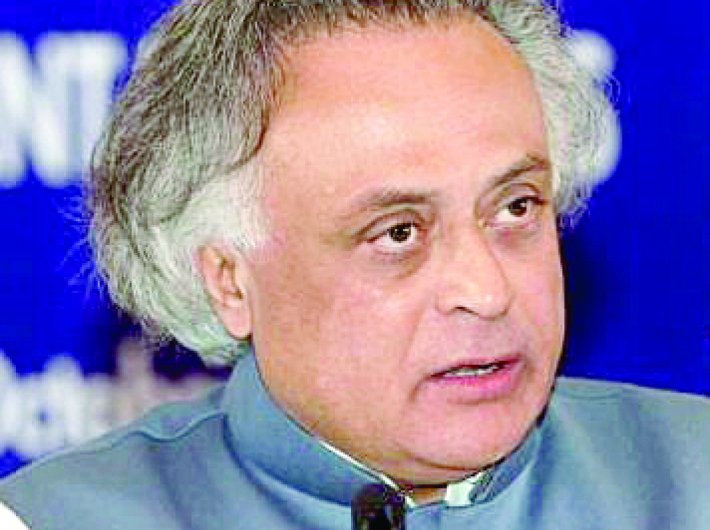India needs to be pragmatic and recognise that the area of climate change opens up opportunities for strategic relations
The vacuum created by US president Donald Trump’s decision to withdraw from the Paris climate agreement is a golden opportunity for India to stand up and demonstrate its leadership on climate change, said former union environment and forests minister Jairam Ramesh.
“At a time when the world is drying for leadership through action, India faces a huge challenge. No country in the world has the vulnerability to climate change like we have. We must negotiate from a position of strength and strategic reassurance,” said Ramesh while speaking on 'Paris Climate Change Pact: After Trump pull-out, who will save the world' at the Observer Research Foundation (ORF) in Mumbai.
Ramesh said that that in 2000, then US president George Bush had said that since India and China were not part of the Kyoto Protocol, then why should the US be. Seventeen years later president Trump has only repeated the same. With the US pulling out of G20 climate agreement, it was a major setback to an agreement that was negotiated in good faith, took many years and was signed by 193 countries.
“It will actually take four years for the US to pull out of it. Mercifully all other countries have clearly and categoricallysaid that Paris agreement is irreversible and countries will stick to agreements they have made. This is a major step forward,” he said.
The former minister said that Paris climate agreement was a modest step forward and a bottoms up agreement. The global goal was for having an agreement that would moderate the increasing temperature in the critical century to no more than 2 degree Celsius.
“For too long in India, our approach to climate change has been predicated in two mantras - that we could not contribute to global warming and second our emissions may be large but our per capita income is very low. This mind set has guided India’s approach to climate change for years.
“60% of our agriculture is rain fed. We have now evidence to show that 10,000 Himalayan glaciers are decreasing, having great implication of water flow in north Indian rivers. The mean sea levels have increased. Our natural resources required for economic interaction like coal, iron ore, bauxite lie in rich forests .The more forest areas we destroy, the more it leads to global warming. No other country has these vulnerabilities of monsoon, mean sea level, melting of glaciers and deforestation.”
Ramesh said that hydel power gives 17% of our electricity, nuclear power gives about 3.5% electricity and another 6.5% supply from solar. “Revenue wise this is significant. The only success we have had in the last two decades is in dealing with the problem of ozone depletion which 12 years ago was a huge issue.
He said that China accounts for 29% of the worlds greenhouse gases, US 16%, EU is about 11% and India and Russia about 5%. At this rate by 2030, India will account for almost 15% of world’s greenhouse gases. Right now our forests accounts for about 6% of absorption of greenhouse gases when forests are actually being destroyed and cut. Now they will actually expand in India and their quality will improve in next 15 years and the absorption capability will go up to 30%.
“The expectation is that in 2018 there will be another round of discussions where countries will agree how these commitments are going to be important.”
Cautioning that environmental and ecological damage is wreaking havoc in large parts of country and we should make environmentalism an issue of livelihood and not lifestyle issues, Ramesh said that in the name of ease of doing business, regulatory boards are driving out environmental concerns. this should not happen as we need to protect the environment.
“Climate change affects India the most and it is India’s political interest not to adopt a moralistic position. We need to be pragmatic and recognise that this area opens up opportunities for strategic relations,” said Ramesh.

